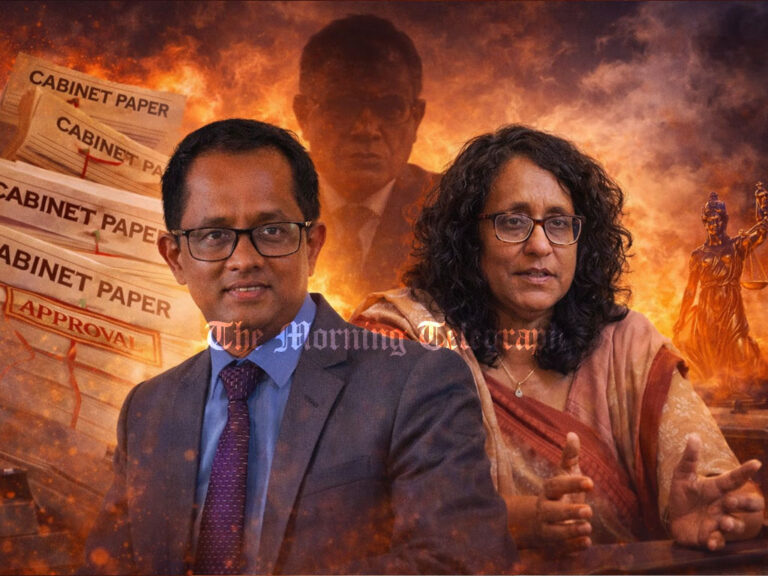
The Sri Lanka Police Headquarters has instructed all officers to conduct checks on individuals behaving suspiciously while wearing protective helmets, even when they are not riding motorcycles. The directive comes in light of a rising trend in criminal activity—particularly shootings and murders—committed by individuals who conceal their identity using helmets.
According to a statement issued by the Police, while wearing a helmet is legally required for the safety of motorcyclists and their passengers, concerns have arisen regarding people wearing such helmets in public spaces without actually riding motorcycles. The directive authorizes police officers to inspect such individuals and their belongings if they are acting suspiciously.
Meanwhile, a recent social media post has sparked public discussion on the boundaries of police authority—especially regarding the legality of searching civilians’ mobile phones without due cause.
In the post, a woman recounted an incident where two young men who had gone to withdraw money from an ATM at night were stopped by police officers on duty. According to her, the officers verbally harassed the men and forcibly searched the mobile phone of one of them.
This incident raised a crucial legal question: Do police officers have the right to search a civilian’s mobile phone?
According to Senior Superintendent of Police (SSP) Buddhika Manathunga, a police officer cannot search a person’s mobile phone without reasonable suspicion. He clarified that if the search is carried out in a manner that does not harm a person or violate their safety, it is advisable to cooperate with officers—but such a search must still be backed by reasonable grounds.
“A mobile phone is part of a person’s private life. A police officer cannot arbitrarily demand to check its contents,” he explained. “For instance, a person simply walking along the street at night cannot be stopped and searched unless there are clear, observable reasons for suspicion—such as contradictory answers or evasive behavior.”
He further explained that if there is reasonable suspicion that a person is involved in a crime or potentially committing an offense, then a police officer is legally permitted to search the person, their bag, and their phone. This discretion must be exercised with care and grounded in lawful cause.
When asked what actions a person can take if their phone is searched unlawfully, SSP Manathunga said a formal complaint can be lodged with the Superintendent or Senior Superintendent of Police in the relevant area. Additionally, the affected person can file a fundamental rights petition before the Supreme Court.
He added that civilians have the right to ask any police officer conducting a search to produce their official police identification, whether they are in uniform or in civilian clothes.
Prominent legal expert and President’s Counsel Upul Jayasuriya weighed in on the issue, stating that even reasonable suspicion is not enough to justify searching a mobile phone. In his view, there must be a specific complaint made against the individual to legally validate such a search.
“A mobile phone is a deeply personal possession. No one—not even a police officer—has the right to search it without a formal complaint or credible accusation,” he said. “If someone experiences such a situation, they should report it to Police Headquarters and file an official complaint.”
This ongoing debate underscores the delicate balance between law enforcement powers and individual privacy in Sri Lanka. While police are responsible for safeguarding public safety, experts stress that these responsibilities must be exercised within the boundaries of the law, especially in an era where digital privacy is a fundamental right.




